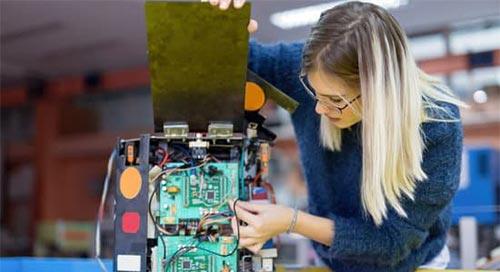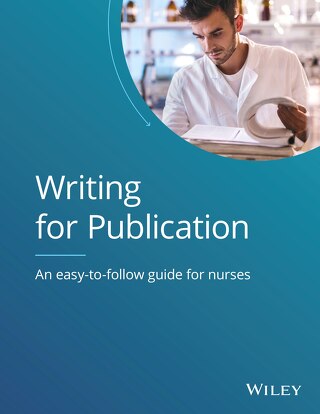the-top-dos-and-donts-for-your-first-month-of-grad-school-in-a-research-lab
August 22, 2014
Well newbie, you’ve found a place to live, and a place to sit. Now what?
The Dos
Source: Ryan McVay / Thinkstock
1. Meet with your advisor
Go meet the boss - just be prepared that your advisor may be extremely busy with: finishing up summer projects, post-conference politicking, and/or prepping for the course that starts a week earlier than he/she thought. Still, you should drop by and say hello; tell your advisor that you are excited to get started and mention anything you might need (e.g., a computer, a desk). You might be nervous but don’t worry. You are just letting your advisor know you are in town and ready to get started. The next time you can come heavy with questions that need answering (after you’ve found that you couldn’t find answers to those questions elsewhere). Before you leave that first meeting, see if you can set up a regular time to meet for a half hour once a week. Your major advisor will be signing many papers for you and giving you general advice, but he/she is likely not as useful to you in your first month as your fellow lab members.
2. Meet with your labmates
Your fellow new grad student(s) will be useful folks to compare notes with (e.g., How’d you get an e-mail account set up? What meetings are we supposed to go to? Which classes did you sign-up for?) Perhaps more useful are the folks that are a little ahead of you (2nd or 3rd year students); they already have all the answers to those easy questions. They will also be the source of some great advice (e.g., “Don’t take classes with Professor Xavier” or “Most of the credits you need to sign up for can be “Pre-candidate credits” and don’t need to be actual classes”). The most senior grad students will be the vets that have just finally figured everything out and are thinking about finishing up. They are ready to dole out advice with confidence, (you can recognize them because they speak of your major advisor on a first-name basis, which even the 2nd yrs are still afraid to attempt to do – “Jim is great, just don’t ask him how to do anything in the molecular lab,” or “Susan is the best, but she is really focused on teaching this semester.”)
If you happen to be the only grad student in the lab, don’t sweat it, there are other places to get this kind of advice – like...
3. Meet with the grad students in other labs
Even though you might not understand what these people are actually working on, they are going through the same experiences as you in the parallel universe of someone else’s lab. They will be some of your best friends over the next few years. It is okay to ask them the same questions you asked your labmates as they might have different answers, and maybe even better answers (e.g., “Your advisor is great but I would add Joan to your committee to balance out his overemphasis on transcriptomics.”).
4. Go to everything
Seminars, parties, faculty meetings, retreats, etc. Go to everything you can this first month. Be a sponge absorbing as much as possible. The people you meet will be the people you will learn from most over the next few years. You might be overwhelmed at times so take a break now and then if you need to, but try to be as much a part of this new culture as possible early on. It will be exciting and scary, but jump in headfirst. You can go back to being a social misfit once you’ve settled in.
5. Start to tool up
You came to this new lab to answer some complicated questions using cutting-edge technology. That new postdoc just gave a talk about this cool new technique they only do at your new university: you need to learn that. Ask if you can volunteer to help him/her on a project to learn the new technique. He or she will get free labor and you’ll learn a new tool you can use in your own dissertation studies. You might even get a publication out of that early collaboration.
The new assistant professor can also be a great collaborator. He or she may be setting up a lab and could use some help generating data. Picking up a small side project from these new hungry faculty members might put you on the fast track to a publication or two. That new professor might not have a lab set up yet, but maybe you can learn to code (a tool that perhaps is more useful than anything else you can learn these days in science).
You want to learn the techniques and skills you will need to complete your dissertation early on so that you can start gathering data. You might not have an exact research question formulated yet, so work with others who do. By collaborating, you will find out what types of projects interest you and which new techniques will help you answer pressing questions in your field. Learn the methods early, get on some collaborative publications, then use those tools to work on your dissertation projects. The foundations for these early collaborations can happen in your first few weeks in grad school.
The Don’ts
1. Don’t try to pick a dissertation topic right away
You may be inclined to come in guns blazing and jump into writing the intro and conclusion chapters of your dissertation - but hold off for a sec. Settle down and learn some tools first. You will have time to formulate your specific research questions, don’t worry if this takes a year or more (so long as you are learning techniques and working collaboratively at the same time– see #5 above.) Soon enough you will have qualifying exams (in year two or three) where you discuss the details of your thesis plans with your committee.
You don’t want to commit so early to a project that you are stuck in a dead end that will cost you valuable time. You might ultimately work on that project you talked about in your graduate application package, but these early days of graduate school are a good time to take a step back and look at the big picture.
2. Don’t be cocky/negative/clicky
You might be feeling insecure this first month. You are surrounded by super smart people with more experience than you. Some people portray their insecurities by being cocky. Don’t be that person. Listen, observe, copy – be humble, or you will get humbled. Don’t brag about what you know because someone likely knows more about it than you and will chop you down. Reputations are made in these early days of graduate school, and first impressions matter.
You will end up being better friends with some people rather than others, that’s natural. Help others and they will help you. Did you find out about a new grant available for first-year grad students? Tell others about it. If you keep it to yourself you might face less competition, but you may also be seen as a bad citizen.
Also just be optimistic newbie: it’s the first month of grad school for Pete’s sake. If you are already a pessimist you might be seen as a hard person to work with. The reputation you actually want is of being the hard worker that completes projects. And let me tell you, the people that succeed in grad school aren’t always the smartest people, but they are almost always the hardest working people.
3. Don’t sign up for more service than you can handle
Yes, take that seminar class with that hip new Assistant Professor. But you don’t need to sign up to organize the grad student seminar series before you know where all the bathrooms are on your floor. Yes, offer to buy chips for the retreat – just don’t offer to be the Dean’s Representative on grad student affairs before you know the first names of your labmates. You can do those more challenging service assignments later on, once you’re settled into a routine. Taking these projects on so early in your graduate career can hinder what matters most: your research.
Dr. Prosanta Chakrabarty is Associate Professor, Louisiana State University. Follow him on Twitter @LSU_FISH, and read his Wiley book, A Guide to Academia: Getting into and Surviving Grad School, Postdocs and a Research Job.














